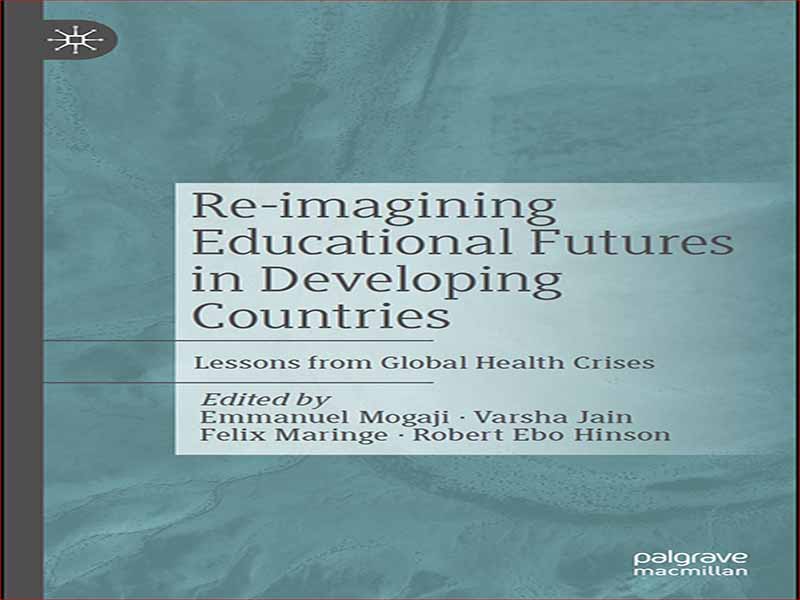- عنوان کتاب: Re-imagining Educational Futures in Developing Countries
- نویسنده/انتشارات: Emmanuel-Mogaji,-Varsha-Jain
- حوزه: پزشکی بحرانی
- سال انتشار: 2022
- تعداد صفحه: 317
- زبان اصلی: انگلیسی
- نوع فایل: pdf
- حجم فایل: 3.72 مگابایت
اگرچه همه دانشگاهها در سراسر جهان به دلیل همهگیری جهانی با چالشهای مشابهی روبرو هستند، دانشگاههای کشورهای نوظهور چالشهای ذاتی دارند که پیچیدگی بیشتری را در نحوه مدیریت تأثیر COVID-19 ایجاد میکند (Marinoni et al., 2020; Mogaji & جین، 2020). چالش هایی پیرامون زیرساخت های موجود وجود دارد. به عنوان مثال، دانشگاه ها از سوی دولت کم بودجه هستند و منابع آموزشی محدودی دارند. پذیرش در دانشگاه های دولتی سریعتر از ظرفیت دولت برای تأمین مالی این مؤسسات در حال رشد است (Iruonagbe et al., 2015; Olaleye et al., 2020). فراتر از خود دانشگاه، چالش هایی در زمینه نفوذ اینترنت و تامین برق وجود دارد. از آنجایی که بسیاری از مردم باید از اینترنت برای آموزش و یادگیری آنلاین استفاده کنند، اتصال ضعیف به اینترنت مشکل ایجاد می کند. ضریب نفوذ اینترنت در نیجریه در ژانویه 2020 به 42 درصد رسید و میانگین سرعت اتصال اینترنت تلفن همراه 15.32 مگابیت بر ثانیه در مقایسه با بریتانیا با 35.57 مگابیت در ثانیه و استرالیا با 67.66 مگابیت در ثانیه بود. علاوه بر این، 96٪ از اتصالات تلفن همراه در نیجریه پیش پرداخت هستند (DataReportal، 2021). کشورهای در اقتصادهای نوظهور نیز میانگین سرعت 10 مگابیت در ثانیه دارند (Hannata، 2019). پیامدهای مالی استفاده از اینترنت نیز یک مسئله است، زیرا بسیاری از افراد ممکن است مجبور شوند داده های بیشتری را برای تعامل با آموزش و یادگیری خریداری کنند.
Although all universities across the world are facing similar challenges due to the global pandemic, universities from emerging countries have inherent challenges that present an additional complexity to the way they can manage the impact of COVID-19 (Marinoni et al., 2020; Mogaji & Jain, 2020). There are challenges around the existing infrastructure; for instance, universities are underfunded by the government and have limited teaching resources. Admissions at public universities are growing more quickly than the government’s capacity to finance these institutions (Iruonagbe et al., 2015; Olaleye et al., 2020). Beyond the university itself, there are challenges with internet penetration and power supply. As many people must use the internet for online teaching and learning, poor internet connections pose a problem. Internet penetration in Nigeria stood at 42% in January 2020, and the average speed of mobile internet connections was 15.32 Mbps compared to the United Kingdom with 35.57 Mbps and Australia with 67.66 Mbps; in addition, 96% of mobile connections in Nigeria are prepaid (DataReportal, 2021). Countries in emerging economies also have an average speed of 10 Mbps (Hannata, 2019). The financial implications of using the internet are also an issue, as many people may have to buy more data to engage with teaching and learning.
این کتاب را میتوانید از لینک زیر بصورت رایگان دانلود کنید:
Download: Re-imagining Educational Futures in Developing Countries




































نظرات کاربران